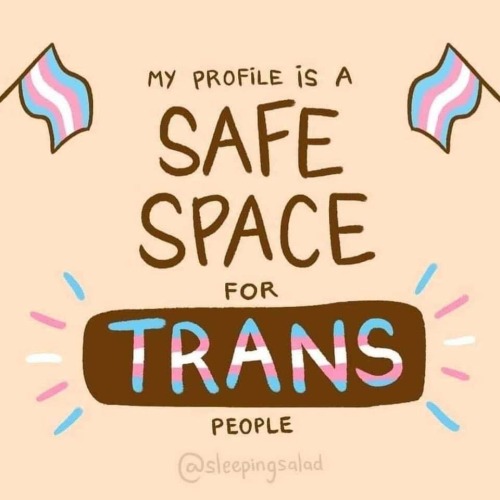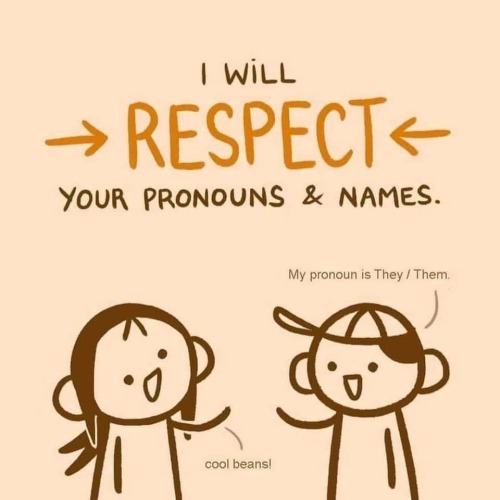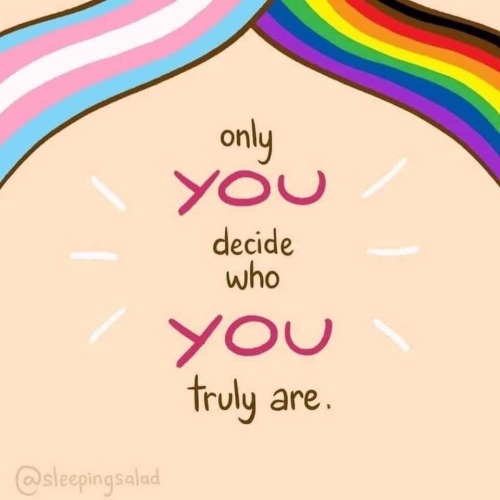Forgetmenots0 - Blissful_blues

More Posts from Forgetmenots0 and Others
Habits That Reveal Deep Character
(A.K.A. the quiet stuff that says everything without screaming it)
❥ The “I Always Sit Facing the Exit” Quirk They don’t talk about their childhood much, but they always know where the exits are. Every restaurant. Every train. Trauma has muscle memory. Your job is to notice what it’s saying without needing a monologue about it.
❥ The “I Can’t Sleep Until I Hear You Lock the Door” Habit It's not controlling. It's care shaped like paranoia. They say “Goodnight” like it’s casual, but they’re counting the clicks of the lock like a lullaby. Let that show more than “I love you.”
❥ The “I Keep Everything You’ve Ever Given Me” Thing Not just gifts. Receipts with your doodles. The crumpled note you wrote when you were mad. Every bit of you that felt real. It’s borderline hoarder behavior, but also? It’s devotion.
❥ The “I Cook When I’m Sad” Pattern Their world’s falling apart, but suddenly everyone has banana bread. It’s not about food—it’s about control, about creating something warm when everything else is cold. And they won’t say it out loud, but they're asking, “Will you stay?”
❥ The “I Practice Conversations in the Mirror” Secret Before big moments, hard talks, or just answering the phone. They're rehearsing being okay. They're trying to be the version of themselves people expect. That’s not weakness—it’s survival wrapped in performance art.
❥ The “I Fix Other People’s Problems to Ignore My Own” Reflex Everyone calls them “strong,” but no one notices how fast they redirect. “How are you doing though?” they ask, one heartbeat after breaking down. Let your reader see how exhaustion wears a smile.
❥ The “I Never Miss A Birthday” Rule Even for people who forgot theirs. Even for exes. It’s not about being remembered—it’s about being someone who remembers. That’s character.
❥ The “I Clean When I Feel Powerless” Mechanism That sparkling sink? Not about hygiene. That’s grief control. That’s despair in a Clorox wipe. Let it speak volumes in the silence of a spotless room.
❥ The “I Pretend I Don’t Need Help” Lie They say, “I’m fine” like it’s a full stop. But their hands shake when they think no one’s looking. Let your other characters notice. Let someone care, even when they don’t ask for it.
❥ The “I Watch People When They’re Not Watching Me” Curiosity Not in a creepy way. In a poet’s way. In a “who are you when no one’s clapping” way. They love the in-between moments: laughter in elevators, fidgeting before speeches. That's who they are—observers, not performers.
reblog if you’re a safe place for:
lesbian
gay
bisexual
transgender
queer
pansexual
demisexual
ace
hopeless romantics
cis-men
cis-women
non binary folks
the whole spectrum etc…
follow everyone who reblogs ;)
Currently mourning the one follower that unfollowed me on tumblr, farewell solider :(
Level up your writing skills in English - Dialogue Punctuation
A guide for those whose first language is not English (pro tips at the end)
Well, this is maybe the most that the new authors struggle with. As any other language, English also has its own rules for dialogues and I bet you could find them on the net as well, but if you want it short - here I am.
First things first, we use ‘’ and “” for dialogues in English and never ‘—‘ or ‘–‘ or spaces or just ‘start new line’. We need to indicate the people are speaking. ‘’ - for thoughts and “” - for speaking.
‘I was dancing with him.’ - I understand it’s in the character’s head.
“I was dancing with him.” - I understand the character says it out loud.
The next part is punctuation. I know, a lot of you maybe struggle with all these commas and no commas at the end, at the beginning, dialogue tags and stuff, but, believe me, it’s not as hard as it seems. So, what is important to remember is that we use commas with things that we do with our mouth or verbally and full stops with actions.
“It was quite interesting,” she said.
Look, comma is inside the “” and ‘said’ is something she does with her mouth or verbally.
“It was not so easy.” She moved closer to the table.
Look, full stops is inside the “” and ‘she’ is written in the capital, because ‘she moved closer to the table’ is not something she could do with her mouth or verbally.
Also, do not forget to start each character’s speaking from the new line, so it doesn’t look like a mess.
“I came here from the north.” He put his gloves on the table.
“Me too,” she agreed.
Look, 2 characters speaking, each of them having their own line. Also, notice that the first one is doing action, which is why there’s a full stop at the end, and the second one is agreeing - which is something we could do with our mouth or verbally and - which is why we have comma at the end.
The other thing to remember is that ‘…’ is not interrupting. It’s about the words slowly fading as the character speaks. If you want to show that the person was interrupted - use ‘—‘.
“I wasn’t sure whether to go…” Jake answered.
Look, there’s no comma or full stop at the end of “” and I understand that Jake’s voice becomes quieter and quieter as he speaks, showing that he’s really unsure of what to do next.
“I wasn’t sure wheth—“
“I will tell you!” she shouted.
Look, there’s no comma or full stop at the end of “” and I understand that the character is interrupted. Also, take a look at the second line: there’s an exclamation mark inside “”, but she is written with the small letter - yes, because shouted is something you do with your mouth or verbally.
One more thing: if your sentence finished with ! or ? there’s no need to add a full stop or comma at the end or after “”, ‘’.
That’s it for beginners. Practice with those above to sharpen your writing skills. Yes, you may think it’s too easy and want more, but believe me - I’m also using the rules above and rarely use the rules I’m gonna tell next in my own writing. Make small things look good first and then go to bigger things.
Well, my fellows, who are professionals in writing dialogues and the tips above were like a baby talk to you, fasten your seatbelts, you’re gonna find out some more tricks (I hope).
Okay, first things first, ‘’ and “” could be interchangeable. If you want to write thoughts in “” - you’re welcome, but don’t forget your choice for the rest of the story, so the readers are not messed up with what’s thought and what’s word:
“I was dreaming,” he thought.
And
‘I was dreaming,’ he thought.
Are both fine.
Next, using dialogue tags or actions before the words themselves:
Jake answered quietly, “What if I got it wrong?”
She pressed her hand to his chest. “It can’t be.”
It’s also okay. Just mind the punctuation: commas are for dialogue tags (mouth or verbally) and full stops for actions.
Depending on what you choose for your story, we use ‘’ inside “” and “” inside ‘’:
“I was surprised by ‘his’ behavior,” she stated.
If you have prolonged dialogue tag or action with dialogue tag, the tag should always come directly to the sentence (it’s easier to avoid any extra punctuation drama):
He answered quietly, smiling, “Of course.”
Julie laughed and asked, “What’s that?”
“I want this,” she replied, walking down the street.
There’s a difference when the words are interrupted by dialogue tag or action:
“We’d rather,” Jake said and lifted his arm, “win this auction.”
“I’ll never”—she pressed her finger to his chest—“let you do this!”
But personally I never use this rule, cause it’s just hard to punctuate and I believe that non-English readers may find it too hard to understand.
Well, that’s all for now, thanks for reading and I hope that was useful! <3



A dating service where matching is based on people’s search history exists. You’re a serial killer. You go on a date with a writer.






Writing Intimacy
i often see writers sharing a sentiment of struggling with writing kiss scenes which honestly bleeds into other portrayals of physical intimacy. i see it a lot in modernized styles of writing popularized by the recent trend in publishing to encourage short, choppy sentences and few adverbs, even less descriptive language. this makes intimacy come across awkward, like someone writing a script or clumsy recounting of events rather than a beautiful paragraph of human connection.
or just plane horniness. but hey, horny doesn't have to be mutually exclusive with poetic or sensual.
shallow example: they kissed desperately, tongues swirling and she moaned. it made her feel warm inside.
in depth example: she reached for the other woman slowly and with a small measure of uncertainty. the moment her fingers brushed the sharp, soft jaw of her companion, eliza's hesitance slid away. the first kiss was gentle when she finally closed the distance between them. she pressed her lips lightly to gabriella's in silent exploration. a tender question. gabriella answered by meeting her kiss with a firmer one of her own. eliza felt the woman's fingers curling into her umber hair, fingernails scraping along her scalp. everything inside eliza relaxed and the nervousness uncoiled from her gut. a warm buzz of energy sunk through her flesh down to the very core of her soul. this was right. this was always where she needed to be.
the first complaint i see regards discomfort in writing a kiss, feeling like one is intruding on the characters. the only way to get around this is to practice. anything that makes you uncomfortable in writing is something you should explore. writing is at its best when we are pushing the envelope of our own comfort zones. if it feels cringy, if it feels too intimate, too weird, too intrusive, good. do it anyway! try different styles, practice it, think about which parts of it make you balk the most and then explore that, dissect it and dive into getting comfortable with the portrayal of human connection.
of course the biggest part comes to not knowing what to say other than "they kissed" or, of course, the tried and true "their lips crashed and their tongues battled for dominance" 😐. so this is my best advice: think beyond the mouth. okay, we know their mouths are mashing. but what are their hands doing? are they touching one another's hair? are they scratching or gripping desperately at one another? are they gliding their hands along each other's body or are they wrapping their arms tightly to hold each other close? do they sigh? do they groan? do they relax? do they tense? are they comfortable with each other or giddy and uncertain? is it a relief, or is it bringing more questions? is it building tension or finally breaking it?
get descriptive with the emotions. how is it making the main character/pov holder feel? how are they carrying those emotions in their body? how do they feel the desire in their body? desire is not just felt below the belt. it's in the gut, it's in the chest, it's in the flushing of cheeks, the chills beneath the skin, the goosebumps over the surface of the flesh. everyone has different pleasure zones. a kiss might not always lead desire for overtly sexual touches. a kiss might lead to the desire for an embrace. a kiss might lead to the impulse to bite or lick at other areas. a kiss could awaken desire to be caressed or caress the neck, the shoulder, the back, the arms etc. describe that desire, show those impulses of pleasure and affection.
of course there is the tactile. what does the love interest taste like? what do they smell like? how do they kiss? rough and greedy? slow and sensual? explorative and hesitant? expertly or clumsily? how does it feel to be kissed by them? how does it feel to kiss them?
i.e. examine who these individuals are, what their motives and feelings are within that moment, who they are together, what it looks like when these two individuals come together. a kiss is not about the mouth. it's about opening the door to vulnerability and desire in one's entire body and soul.
true dat :(

Write it shitty, write it scared, write it without a clue but don't you be so spineless and have an AI write fanfic for you.

-
 imaginary-regret-608 liked this · 1 week ago
imaginary-regret-608 liked this · 1 week ago -
 white-fanged liked this · 1 week ago
white-fanged liked this · 1 week ago -
 themilktomytea reblogged this · 1 week ago
themilktomytea reblogged this · 1 week ago -
 impossibletacoenthusiast liked this · 1 week ago
impossibletacoenthusiast liked this · 1 week ago -
 arandombear liked this · 1 week ago
arandombear liked this · 1 week ago -
 xeinova reblogged this · 1 week ago
xeinova reblogged this · 1 week ago -
 paulapine liked this · 1 week ago
paulapine liked this · 1 week ago -
 kairokas reblogged this · 1 week ago
kairokas reblogged this · 1 week ago -
 tumbling-to-hell reblogged this · 1 week ago
tumbling-to-hell reblogged this · 1 week ago -
 tumbling-to-hell liked this · 1 week ago
tumbling-to-hell liked this · 1 week ago -
 balloyarn liked this · 1 week ago
balloyarn liked this · 1 week ago -
 curb-the-waist reblogged this · 1 week ago
curb-the-waist reblogged this · 1 week ago -
 cocobarasblog liked this · 1 week ago
cocobarasblog liked this · 1 week ago -
 frootcentral reblogged this · 1 week ago
frootcentral reblogged this · 1 week ago -
 finch-bewitched liked this · 1 week ago
finch-bewitched liked this · 1 week ago -
 quantumnoodle liked this · 1 week ago
quantumnoodle liked this · 1 week ago -
 mogumbo78 reblogged this · 1 week ago
mogumbo78 reblogged this · 1 week ago -
 codedblackphoenix reblogged this · 1 week ago
codedblackphoenix reblogged this · 1 week ago -
 vansharell reblogged this · 1 week ago
vansharell reblogged this · 1 week ago -
 vansharell liked this · 1 week ago
vansharell liked this · 1 week ago -
 diddi-p reblogged this · 1 week ago
diddi-p reblogged this · 1 week ago -
 coldstonekate-blog liked this · 1 week ago
coldstonekate-blog liked this · 1 week ago -
 gessinggames liked this · 1 week ago
gessinggames liked this · 1 week ago -
 ifirestone reblogged this · 1 week ago
ifirestone reblogged this · 1 week ago -
 ebpokotuk liked this · 1 week ago
ebpokotuk liked this · 1 week ago -
 operationandre liked this · 1 week ago
operationandre liked this · 1 week ago -
 ssharkdadd reblogged this · 1 week ago
ssharkdadd reblogged this · 1 week ago -
 ssharkdadd liked this · 1 week ago
ssharkdadd liked this · 1 week ago -
 carwashgritty liked this · 1 week ago
carwashgritty liked this · 1 week ago -
 chaoticqueertiefling reblogged this · 1 week ago
chaoticqueertiefling reblogged this · 1 week ago -
 bigb209 liked this · 1 week ago
bigb209 liked this · 1 week ago -
 serena-artworks liked this · 1 week ago
serena-artworks liked this · 1 week ago -
 jurassicmess liked this · 1 week ago
jurassicmess liked this · 1 week ago -
 ph1a-r liked this · 1 week ago
ph1a-r liked this · 1 week ago -
 avecesave reblogged this · 1 week ago
avecesave reblogged this · 1 week ago -
 madamfabulous reblogged this · 1 week ago
madamfabulous reblogged this · 1 week ago -
 zayla38 liked this · 1 week ago
zayla38 liked this · 1 week ago -
 miauuau liked this · 1 week ago
miauuau liked this · 1 week ago -
 qibaii liked this · 1 week ago
qibaii liked this · 1 week ago -
 ineffablexsuitcase liked this · 1 week ago
ineffablexsuitcase liked this · 1 week ago -
 sweetdollmimi liked this · 1 week ago
sweetdollmimi liked this · 1 week ago -
 maddybaerish liked this · 1 week ago
maddybaerish liked this · 1 week ago -
 magicmorgo liked this · 1 week ago
magicmorgo liked this · 1 week ago -
 xxmidnight-melodyxx reblogged this · 1 week ago
xxmidnight-melodyxx reblogged this · 1 week ago -
 xxmidnight-melodyxx liked this · 1 week ago
xxmidnight-melodyxx liked this · 1 week ago -
 evilfaggotbillcipher reblogged this · 1 week ago
evilfaggotbillcipher reblogged this · 1 week ago -
 dcwarriorscomivs liked this · 1 week ago
dcwarriorscomivs liked this · 1 week ago

~𝐖𝖊𝖑𝖈𝖔𝖒𝖊!~☆ ⠂⠄⠄⠂⠁⠁⠂⠄⠄⠂⠁⠁⠂⠄⠄⠂ ⠂⠄⠄⠂✦ ⠂⠄⠄⠂⠁⠁⠂⠄⠄⠂⠁⠁⠂⠄☆✦ FF Reader (Planning to write someday)✦ New to Tumblr✦𝐌𝐲 𝐎𝐧𝐞 𝐚𝐧𝐝 𝐎𝐧𝐥𝐲 💕: @dragonoftheshadows✦ 𝐅𝐚𝐧𝐝𝐨𝐦𝐬: Marvel Cinematic Universe☆ ⠂⠄⠄⠂⠁⠁⠂⠄⠄⠂⠁⠁⠂⠄⠄⠂ ⠂⠄⠄⠂✦ ⠂⠄⠄⠂⠁⠁⠂⠄⠄⠂⠁⠁⠂⠄☆✰ʜᴀᴠᴇ ᴀɴ ᴀᴍᴀᴢɪɴɢ ʀᴇsᴛ ᴏғ ʏᴏᴜʀ ᴅᴀʏ!✰
31 posts